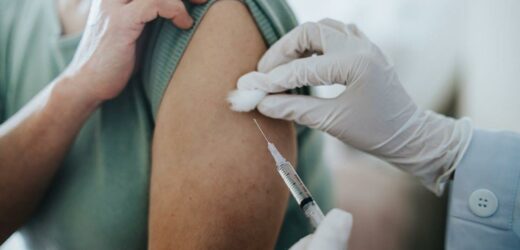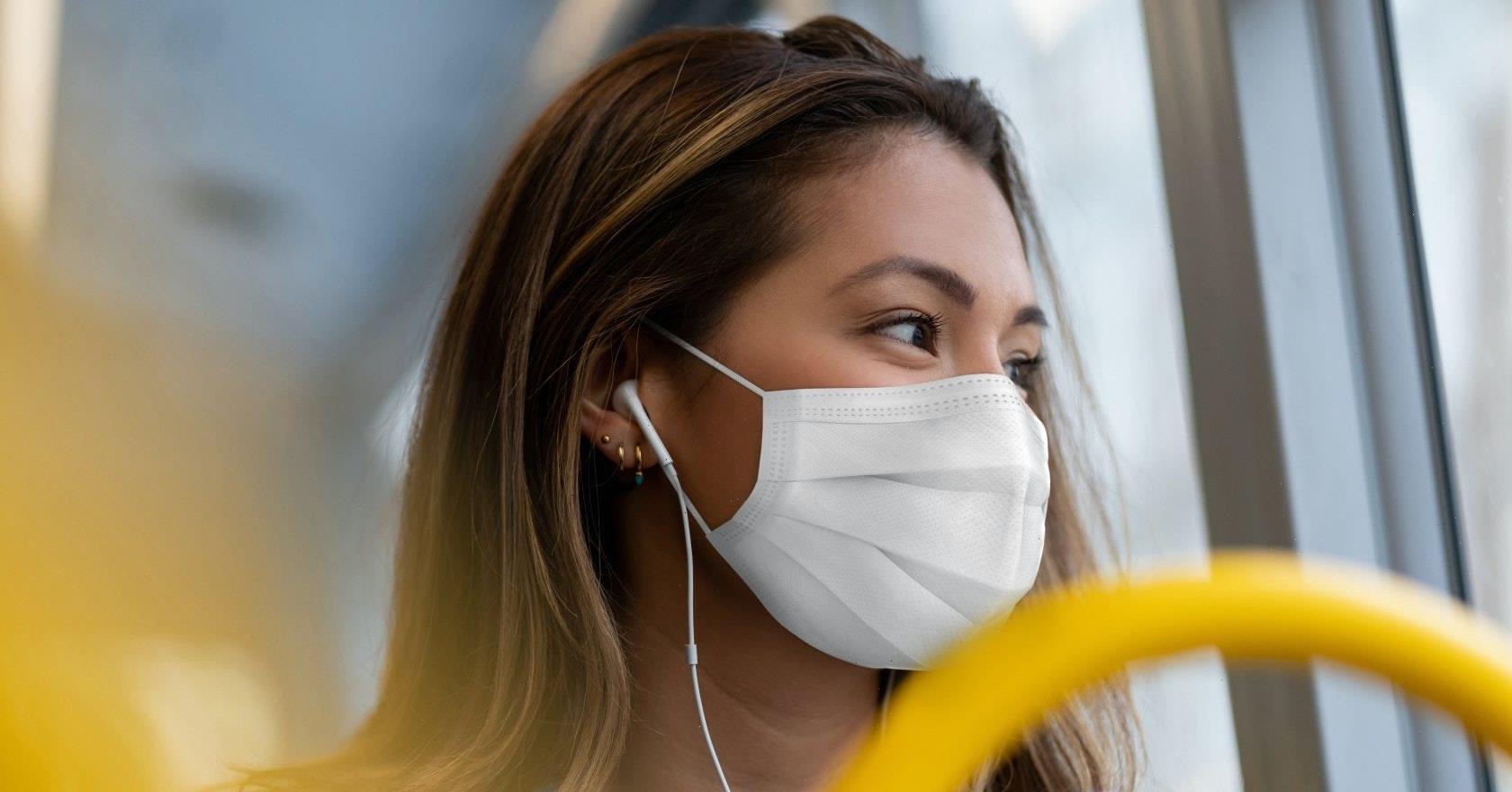Coronavirus: UK to impose screening on travellers from China
We use your sign-up to provide content in ways you’ve consented to and to improve our understanding of you. This may include adverts from us and 3rd parties based on our understanding. You can unsubscribe at any time. More info
There are no plans at present to widen the UK’s Covid booster programme to include the general populace under the age of 50, it has been confirmed. This is despite fears over a possible “tripledemic” this winter of Covid, flu and RSV. The UK is also facing a surge in a new and highly infectious Omicron variant, XBB.1.5, which is responsible for one-in-25 Covid cases in the UK and a whopping 40 percent of cases across the pond in the US. Express.co.uk asked the UK Health Security Agency (UKHSA) whether — alongside continuing the national flu immunisation programme — additional booster vaccines against COVID-19 might become necessary in coming weeks.
A spokesperson for the UKHSA said: “The Joint Committee on Vaccination and Immunisation (JCVI) would have to meet and decide to change their current advice.”
To protect against severe COVID-19 — and specifically the risk of hospitalisation and death — the UK started an autumn booster jab programme last year which included all adults aged 50 and over, those in a clinical risk group, carers, frontline health and social care workers, older adults living or working in care homes and household contacts of people with immunosuppression.
This programme is still open to people who have yet to have their autumn booster — with NHS England telling Express.co.uk there is “no end date at the moment, and we’re still prompting people to come forward for their jab.”
However, the UKHSA has noted: “Rapid vaccine response measures may be required should there be substantial changes in population immunity against the dominant circulating variant, including any new variant of concern.”

Alongside COVID-19 and influenza, high numbers of scarlet fever — which is caused by group A streptococcus bacteria — are also still being reported, officials warned.
Yesterday, the UKHSA’s Chief Medical Advisor, Professor Susan Hopkins, reiterated that those feeling unwell with winter illnesses are recommended to stay at home where possible to reduce the spread of infection — and don face masks when out and about.
This recommendation was given as part of “back to school” advice issued yesterday to help reduce the spread of winter illness in schools and protect children and wider communities, as well as reduce pressure on the NHS.
A spokesperson for the UKHSA told Express.co.uk: “The face mask advice isn’t new — it’s featured in the Government’s Living with Covid plan and we have advised face masks for these same circumstances in our weekly Covid comms.”


Prof. Hopkins said: “It’s important to minimise the spread of infection in schools and other education and childcare settings as much as possible.
“If your child is unwell and has a fever, they should stay home from school or nursery until they feel better and the fever has resolved.
“Adults should also try to stay home when unwell — and if you do have to go out, wear a face covering. When unwell, don’t visit healthcare settings or visit vulnerable people unless urgent.
“Remember that flu vaccination is still available for all eligible groups and is the best protection against the virus. We have seen good uptake in older age groups but vaccination among young children remains low.”


According to the UKHSA, all children aged two–three on August 31 last year, all primary school-aged children and some secondary school-aged children are eligible for the flu jab.
Prof. Hopkins said: “Flu can be very unpleasant and in some cases can lead to more serious illness. Getting your child vaccinated protects them and others they come into contact with, and it’s still not too late.”
She added: “Helping children to learn about the importance of good hand hygiene is also key, so practise regular hand washing at home with soap and warm water.
“Catching coughs and sneezes in tissues, then binning them, is another simple way to help stop illness from spreading.”
DON’T MISS:
EU losing billions of UK’s cash as Britain ready to fund ‘Bold Plan B’ [ANALYSIS]
Man saves £12,000 after making frenzy of green investments [INSIGHT]
China accused of cover-up as Beijing denies failure of ‘Zero-Covid’ [REPORT]

The advice from the UKHSA comes as a US medical officer has stressed the importance of taking a COVID-19 test if you feel ill in the wake of the holiday season — especially if you are aged over 65, have underlying health conditions, or are not fully vaccinated.
Epidemiologist Dr David Weber of the University of North Carolina at Chapel Hill told The Charlotte Observer that “we always see surges in these viruses after the holidays. We did after Thanksgiving, and we will in the days after Christmas and New Year’s.
“We have therapies for Covid — the biggest risk right now — and for the flu. Make sure you know which virus you have, so you can get the right treatment.”
Symptoms for the winter illnesses presently in circulation — including COVID-19, influenza and RSV — overlap, he noted, meaning it is easy to confuse one for another.
According to Dr Weber, it is important to begin GP-prescribed treatments for COVID-19 and the flu as soon as possible to achieve the best results. Flu therapy is best taken within two days of symptom onset, and Covid therapy within five days, he added,
Dr Weber warned: “If you wait a few days and wind up getting worse, you’re already past the window for therapies to work,
“By the time you reach the age of 50, there’s a 50/50 chance you have an underlying disease that puts you at greater risk of hospitalisation and death from these viruses.”
The epidemiologist added that he says this “not to scare people, but to show how important it is to take the time to get tested and get treatment.”
Source: Read Full Article


